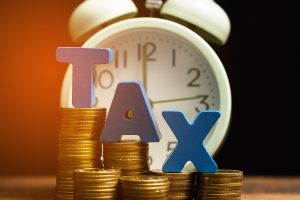 The Competition Commission of India (CCI), in the case of DGAP Versus M/s Subway Systems India Pvt. Ltd vide Case No. 08/2023 dated 31.07.2023, held that charging royalty and advertising expenses does not amount to profiteering.
The Competition Commission of India (CCI), in the case of DGAP Versus M/s Subway Systems India Pvt. Ltd vide Case No. 08/2023 dated 31.07.2023, held that charging royalty and advertising expenses does not amount to profiteering.
The bench of CCI observed that the rate of GST in respect of Royalty Services was 12% and the rate of GST on Advertisement Charges was 5% in the case of Print media and 18% (other than Print media) since the implementation of GST, and there had been no reduction in the rates of tax. Since there had been no reduction in the rate of tax in respect of the services (e.g., Royalty services and Advertisement services) provided by the Respondent, the provisions of Section 171 of the CGST Act, 2017 were not applicable with respect to these services.
The respondent/Subway was working on a Franchisee-Franchisor agreement and was providing its business model to various operators, and he was only collecting Royalty and Advertisement Charges from his Franchisees for selling proprietary products of Subway on the net sales declared by individual Franchisees. The rate of Royalty and Advertising Charges was mutually agreed upon with the franchisee, and the Respondent had nothing to do with the individual products sold to the customers.
The Franchisee was only supposed to pay the Royalty Charges and Advertisement charges, as the case might be, on the net sales. Subway did not have any control over the base price offered by its Franchisees to their customers or the amount of Input Tax Credit availed by his Franchisees. As per the Agreement between the Franchisee and Franchisor, there was no clause that indicated that Subway was fixing prices or that he had been supplying the material and was retaining the ITC.
Subway had imposed no restriction on its franchisee’s ability to offer discounts to their customers in compliance with Section 171 of the CGST Act, 2017. The consideration for the sale of products was not received by the Respondent from his franchisee, but it was retained by the individual Franchisees and accounted for as revenue in their individual books of accounts.
The main issue in the case was whether the respondent, Subway Systems India Pvt. Ltd., fixed rates for its franchises and made money through royalties and advertising fees.
After reviewing the information, the Director General of Anti-Profiteering (DGAP) came to the conclusion that Subway had no influence on the base pricing established by its franchisees. Subway earned royalties and advertising fees based on net sales, not the base price, and franchisees were in charge of setting prices.
The DGAP discovered that Subway’s services did not result in a reduction in the tax rate. Section 171 of the CGST Act of 2017, which calls for passing on the advantages of lower tax rates, did not apply in this situation.
The CCI held that the case does not fall under the ambit of the anti-Profiteering provisions of Section 171 of the CGST Act, 2017 as there had been no reduction in the rate of tax in respect of the services provided by Subway, nor was it supplying the various products to the customers.


